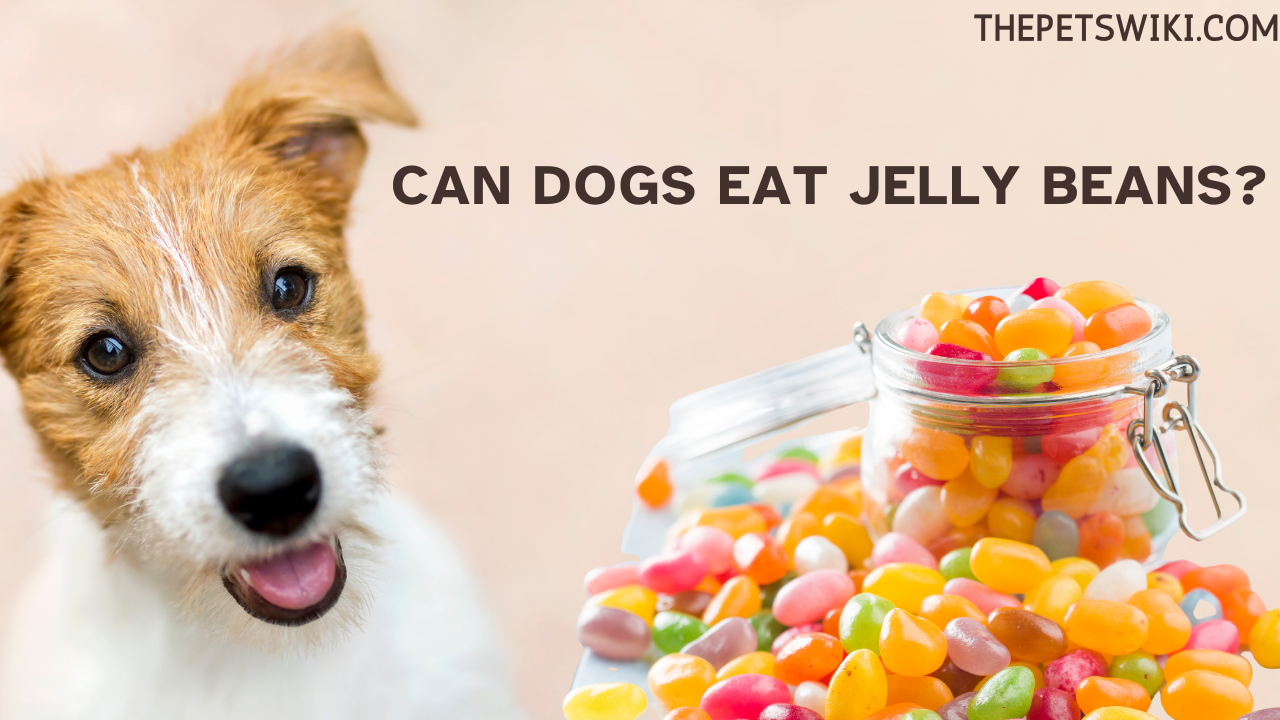Every time I indulge in a bite-sized treat, the thought crosses my mind – can I share a small piece with my dog? So, have you ever wondered, can dogs eat jelly beans? Let’s find the answer.
Can Dogs Eat Jelly Beans?
Jelly beans can pose serious health risks to dogs due to the presence of ingredients like Xylitol or caffeine. Xylitol is a sugar substitute commonly found in sugar-free products, and it can lead to insulin release, causing hypoglycemia (low blood sugar) in dogs. Even small amounts of Xylitol can be extremely toxic. Caffeine, another potential ingredient, can lead to symptoms like restlessness, rapid breathing, and elevated heart rate in dogs.
It’s crucial to keep jelly beans and similar candies out of reach to prevent accidental ingestion and potential harm to your furry friend.
Health Risks of Jelly Beans To Dogs
Here are the key health risks associated with dogs consuming jelly beans:
- Xylitol Poisoning: Many sugar-free jelly beans contain Xylitol, a sugar substitute. Xylitol is highly toxic to dogs and can lead to insulin release, causing hypoglycemia (low blood sugar). This can result in seizures, lethargy, and, in severe cases, liver failure.
- Caffeine Sensitivity: Some jelly beans, especially those with chocolate flavors, may contain caffeine. Dogs are highly sensitive to caffeine, and its ingestion can lead to restlessness, rapid breathing, increased heart rate, and, in extreme cases, caffeine toxicity.
- Gastrointestinal Issues: The high sugar content in jelly beans can contribute to digestive problems in dogs. Consuming excessive sugar may lead to vomiting, diarrhea, and stomach upset.
- Obesity and Dental Concerns: Regular consumption of sugary treats like jelly beans can contribute to obesity in dogs. Additionally, the sticky nature of these candies can adhere to the teeth, increasing the risk of dental issues.
- Choking Hazard: The size and texture of jelly beans pose a choking hazard, especially for smaller dog breeds. Ingesting whole jelly beans without proper chewing can lead to choking.
Also, read Can Dogs Eat Yoplait Yogurt? [Safe or Unsafe]
What Should I Do If My Pet Eats Jelly Beans?
If your pet accidentally consumes jelly beans, especially those containing Xylitol or caffeine, it’s crucial to act promptly. Xylitol, a sugar substitute, can lead to insulin release, causing hypoglycemia (low blood sugar), seizures, and liver failure in dogs. Caffeine is a stimulant that affects the central nervous system and, in dogs, can lead to restlessness, rapid breathing, heart palpitations, and even death.
Here’s what you should do:
- Immediate Action: If you witness your pet ingesting jelly beans, especially if they contain Xylitol or caffeine, take immediate action.
- Check the Ingredients: Examine the jelly bean packaging to identify if it contains Xylitol or caffeine. If it does, be vigilant for potential symptoms.
- Monitor for Symptoms: Watch for signs of Xylitol or caffeine toxicity, including vomiting, diarrhea, lethargy, tremors, seizures, or any unusual behavior.
- Contact Your Vet: If you notice any adverse effects, contact your veterinarian immediately. Provide details about the ingredients and the quantity ingested.
- Vet Examination: Your vet may recommend bringing your pet in for an examination. They may induce vomiting, administer activated charcoal to absorb toxins, and provide supportive care.
- Prevention: Keep all candies, including jelly beans, out of your pet’s reach to prevent accidental ingestion.
Is It OK For Dogs To Eat Jelly?
No, dogs should not eat jelly because it may cause various health issues like Vomiting, Tiredness, Weakness, Collapse, Difficulty standing or walking, Coma, Liver failure, and Bleeding problems.
What Candy Can Dogs Eat?
Dogs can safely eat certain candies in moderation, such as plain, sugar-free peanut butter, or dog-specific treats. Always avoid candies containing Xylitol or chocolate, as these are toxic to dogs.
Do Jelly Bellies Have Xylitol?
Jelly Bellies do not contain Xylitol, making them safe for dogs in moderation. However, other ingredients like sugar and artificial additives should still be considered.
Conclusion
In summary, it’s crucial to keep jelly beans away from dogs. The presence of Xylitol or caffeine in some varieties poses severe health risks, even in small amounts. To ensure your dog’s well-being, avoid sharing jelly beans and opt for dog-safe treats instead.


